How Does An Oil Heating System Work?
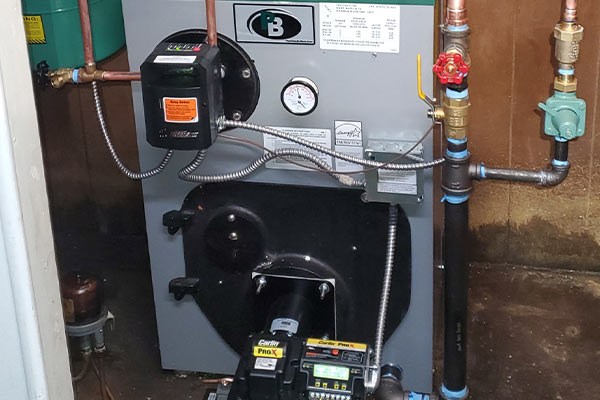
Oil heating systems are environmentally friendly and clean. They also have a significantly longer lifespan compared to other fuel systems. Furthermore, using an oil heating system in your home is a smart financial move. These systems are known for their cost-effectiveness and high efficiency, particularly the newer models that boast remarkable Annual Fuel Utilization Efficiency (AFUE) ratings. But how does an oil heating system work? In this article, we delve into the details of oil heating systems and explain their workings.
First, we’ll address and clear up some common myths surrounding oil heating systems.
Misconceptions About Oil Heating Systems
Table of Contents
- Environment: There’s a prevailing belief among many that heating oil doesn’t burn as cleanly as other heating systems. This notion, however, doesn’t hold up to scrutiny. Thanks to significant technological advancements in heating equipment, fuel oil combustion is exceptionally clean, aligning well with the stringent air pollution standards established by the EPA. Consequently, oil heating systems emerge as a superior choice for those committed to environmental protection.
- Cost: Oil heating systems are less expensive and have double the lifespan of other heating systems. This investment leads to a noticeable 5% reduction in fuel costs.
- Lifespan: While systems like propane and natural gas typically last between 11 to 14 years, oil heating systems can function effectively for around 30 years.
- Safety: Contrary to some beliefs, heating oil is extremely safe. Its safety profile is comparable to that of diesel fuel. Properly stored heating oil poses no risk of explosion, alleviating any concerns about its use in residential settings.
Understanding How Oil Heat Works
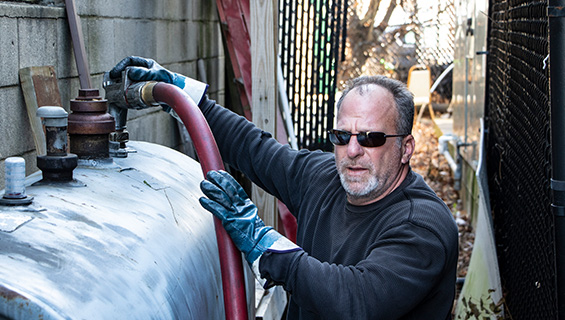
Oil heating systems efficiently warm your home through three primary methods: vents, baseboards, or radiators. The process initiates when the thermostat detects a temperature drop below a set threshold. At this point, it signals the heating system to activate and raise the temperature in your home.
As the heating process begins, oil is transferred from the storage tank to the burner via a pump. The oil is transformed into a fine, warm mist that blends seamlessly with air. This mixture of fuel and air enters the burner, igniting to produce flames within the combustion chamber.
The heat generated by the oil varies based on your system type. In central forced-air systems, the heated air is circulated through a network of ducts and vents, effectively warming different areas of your home. On the other hand, hydronic heating systems work by heating water, which is then circulated to radiators or baseboards, depending on your home’s configuration.
When selecting a heating oil system, you have two primary choices: a furnace or a boiler. While each has unique characteristics, they share a common advantage: newer models are designed for heightened efficiency. This focus on energy-efficient manufacturing in HVAC technology ensures that furnaces and boilers offer optimal performance.
Oil-Heat Furnaces
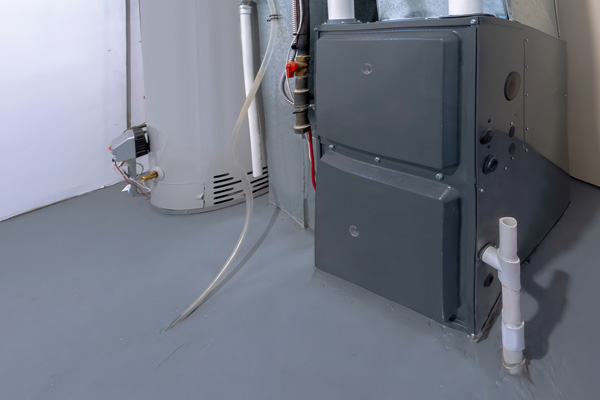
Contemporary oil-heat furnaces, particularly those meeting minimum-efficiency standards, operate with greater efficiency than the older atmospheric models. This enhanced performance is achieved by a fan directing exhaust air across a heat exchanger.
The most efficient option in oil-heated furnaces is the newer condensing models. These furnaces are designed to minimize heat loss to the exterior. Instead of immediately venting the hot exhaust, they cool the gases first. This process causes water vapor to condense, and the exhaust is then efficiently expelled outside through a plastic pipe on the side of the unit.
Oil-Fired Boilers
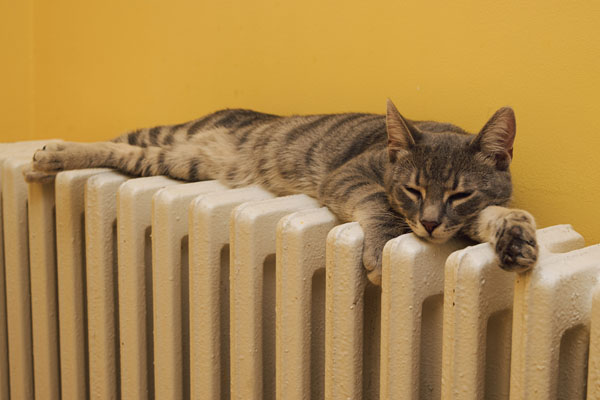
These boilers specialize in heating water, which circulates throughout the house, delivering warmth via radiators or baseboards. As the water cools, it cycles back to the boiler for reheating, ensuring a consistent warmth flow.
Although less common, steam boilers operate on a different principle. In these systems, water is boiled to create steam, which then travels through the system, providing heat through radiators.
The fundamental difference between furnaces and boilers is their heating method: furnaces heat air, while boilers heat water. Both systems utilize a similar mechanism, where oil heats the system, enabling the circulation and reheating of air or water.
In both, the heating begins in the combustion chamber, where oil ignites, creating heat. This heat is then transferred by a heat exchanger to air in furnaces or water in boilers, efficiently warming your home.
Maintaining Your Oil Heating System
Regular maintenance is key for the optimal functioning of oil heater systems, similar to other heaters. To begin, it’s advisable to clean your thermostat before the onset of the heating season. This step is essential as the thermostat plays a vital role in regulating your home’s temperature.
Maintaining the blower and stack components of your oil heating system is vital. These parts oversee the burner’s operation, and regular upkeep is necessary to remove particles and debris that might hinder the heater’s efficiency.
While homeowners can perform some maintenance tasks, enlisting a professional’s expertise to ensure your system is fully operational before winter sets in is highly recommended. Don’t delay in scheduling your HVAC services. An annual cleaning is typically sufficient to enhance your heating system’s efficiency, reduce heating costs, improve air quality, and elevate the comfort level of your home.
Advantages of Oil Heating Systems for the Environment
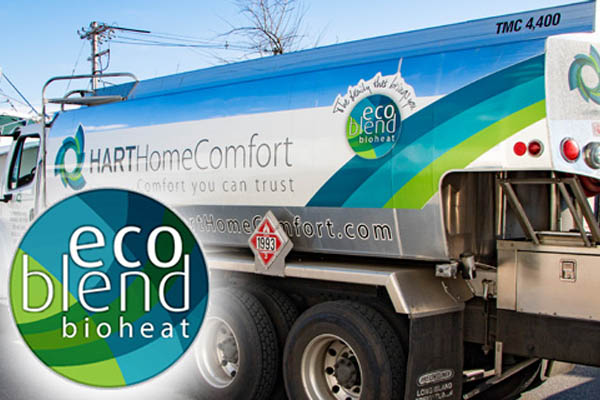
Oil heating systems are renowned for their clean heating capabilities. Modern systems are designed to emit minimal smoke and combustion debris, ensuring a cleaner environment inside and outside your home. The Environmental Protection Agency (EPA) acknowledges oil burners as one of the cleanest combustion sources.
When properly maintained, oil tanks pose no health or environmental risks and can remain functional for many decades. Heating oil is non-toxic, does not contain carcinogens, and is biodegradable.
The environmental advantages of oil heating systems make them a worthwhile investment. Beyond their cost-effectiveness and longevity, these systems contribute positively to environmental health by emitting negligible amounts of smoke or debris into the air. The environmental advantages of oil heating systems make them a worthwhile investment. Beyond their cost-effectiveness and longevity, these systems contribute positively to environmental health by emitting negligible amounts of smoke or debris into the air.
In Conclusion
Having explored the numerous advantages and the functioning of oil heating systems, it’s clear that modern systems are both environmentally friendly and cost-effective in the long term.
To ensure your heating system operates seamlessly during the chilly winter months, it’s crucial to have it inspected by a professional HVAC contractor. Their expertise will provide you with the peace of mind that your heating system is reliable and won’t falter when you rely on it the most. Don’t delay; schedule a cleaning for your heating system today.
Call Hart Home Comfort For Your Home Heating Requirements
When you need superior HVAC services in the area, do not hesitate to call Hart Home Comfort. We have the best professionally certified technicians who can conduct high-quality heating and cooling services, including maintenance, repairs, replacements, and installations. All our friendly techs are equipped with the correct tools, extensive knowledge, and years of experience to service any HVAC system accurately.
Our company has the most competitive and affordable home comfort service costs in the area. When you need to replace your HVAC system, we can recommend the best and most budget-friendly unit for your home. Schedule an appointment with Hart Home Comfort today for a free, in-home estimate.
We also offer fast and reliable home heating oil deliveries. You can choose from one of our many financing plans and delivery options. This way, you can customize your oil deliveries to meet your needs. Hart Home Comfort delivers EcoBlend Bioheat® heating oil, a blend of high-quality ultra-low sulfur heating oil and biodiesel.
By ordering your fuel from us, you can help reduce carbon emissions and help the environment, while taking advantage of our superior oil delivery services. Call today to schedule a full delivery for your home or office.
For any questions about what Hart Home Comfort can do for you, give us a call today. Click here to contact us now or call us at (631) 667-3200 to find out more! Click the link to view our service area.

Related Articles: